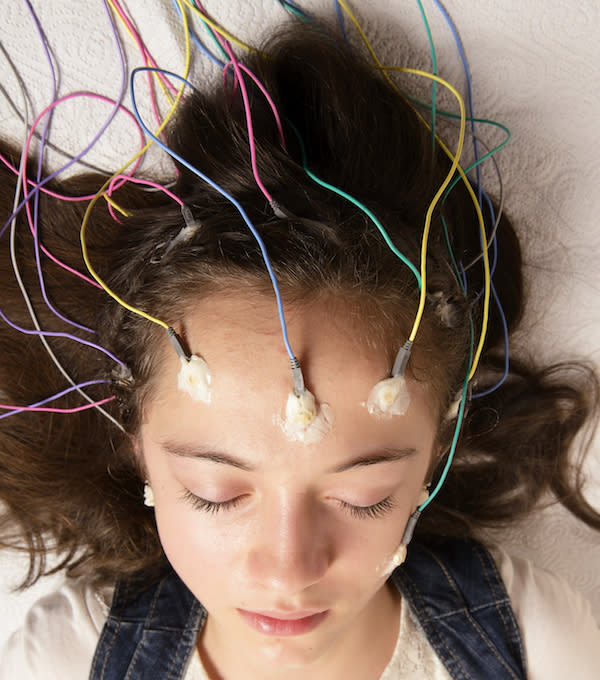Talking about epilepsy will help us destigmatize it
November is Epilepsy Awareness Month.
I have always been aware of epilepsy because my older sister lives with the condition. For those who aren’t as familiar, epilepsy is a neurological condition resulting in frequent seizures.
Whenever I meet new people — be it a date, friend, or colleague — conversations about family inevitably arise. I tell them about my older sister and younger brother, and the next question is always, “What do they do?”
I mention that my sister has epilepsy, as well as learning difficulties, which means that she doesn’t have a full-time job like you and me. She attends college weekly and learns how to live independently. Questions about her epilepsy always follow.
***
When I was younger, I was so embarrassed to answer those questions.
I was 8 or 9 years old when a boy in my class asked me if my sister ever bit her tongue during a seizure. Not knowing how to respond, I ran over to the teacher, crying my eyes out, and said that he was making fun of my sister. In retrospect, I think he was only asking out of curiosity. But why was I so embarrassed — or ashamed — to talk about my sister’s epilepsy?
Ever wonder why epilepsy is so common, yet you don’t hear much about it? Us too! #EpilepsyAwarenessMonth pic.twitter.com/U7iTajzp9Q
— EpilepsyFoundationFL (@EFOF) November 25, 2017
I think it was partly due to being young; I didn’t want to be different from my peers. I didn’t know anyone else living with epilepsy, or anyone with an epileptic relative. That made me and my family different, which is not really something that children like to be.
As is the case with many health issues, there is stigma and silence surrounding epilepsy, making it difficult to openly discuss.
But having epilepsy is not something to be ashamed of, and it should most certainly not be a taboo subject. My sister and my family are not alone.
That’s why I wanted to write this piece for Epilepsy Awareness Month.
In the U.K,, where my family and I live, 600,000 people — or one in every 103 people — have epilepsy. The disorder affects 65 million people worldwide. It can affect anyone of any age and from any walk of life. Celebrities living with the condition include Lil Wayne, Susan Boyle, and the late, great Prince. There are different severities of epilepsy. It is a spectrum condition with a wide range of seizure types and frequencies, varying from person to person.
***
Epilepsy has been a condition that not only affects my sister — the person who is actually living with it — but our family as well. Though I want to reiterate that epilepsy affects many people in different ways, and this my just my own experience.
Growing up, I was unaware of the impact it had on my parents.
I hadn’t considered the stress of all the appointments they’ve needed to attend with my sister. I’d never imagined the instant panic they must feel when they receive an unscheduled phone call from my sister’s college at a random time of day. I didn’t understand the pressure of giving my sister her medication at the correct time every day, or the correct number of tablets according to the time. I can’t imagine their anxiety.
As my sister and I have gotten older, I am slowing understanding a fraction of what my parents feel. Every time there’s a bang upstairs, I can’t help but think, did my sister fall? Is she having a seizure?
It’s a horrible thought that emphasizes the stress our family goes through — but no matter how hard it gets, my sister pulls through and so do we.
November is: #EpilepsyAwarenessMonth, I won’t let it hold me back and I’m proud to be a voice for those who suffer in silence. pic.twitter.com/a9JKQxSQO7
— Laura Weiss-Szeto (@WeissSzeto) November 4, 2017
While I cannot speak to the experience of having epilepsy, I know what it’s like to support my sister. I want to prove that we should not be afraid or ashamed to talk about epilepsy. I want to motivate more people to talk about epilepsy — and not just so that we’re more educated about the condition. If we talk about it, when an epileptic person has a seizure and needs help, we will actually know how to help them.

